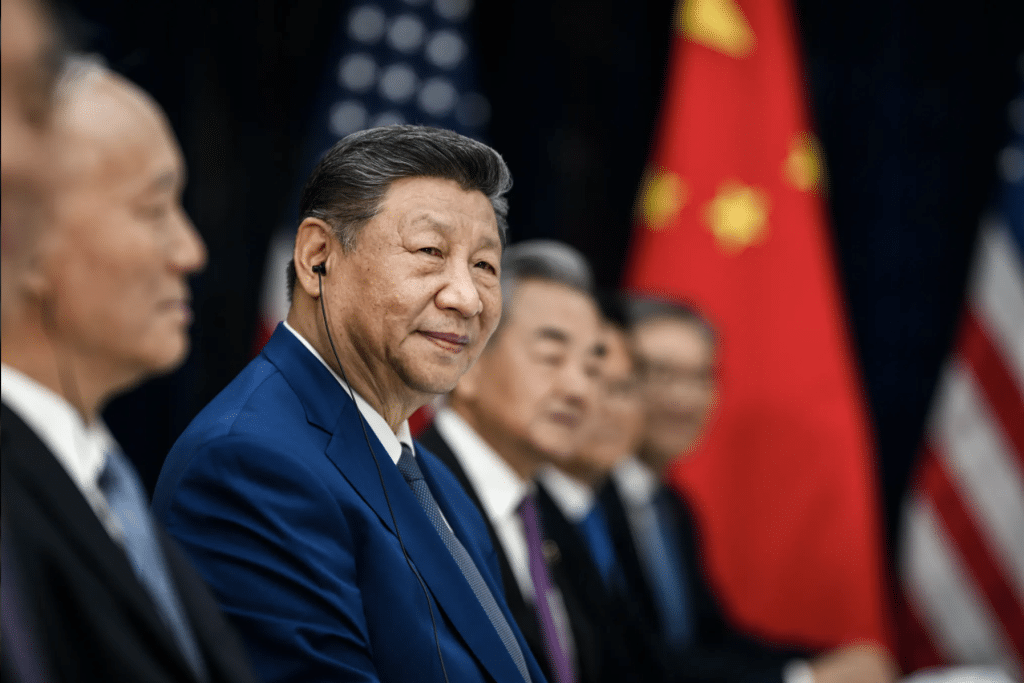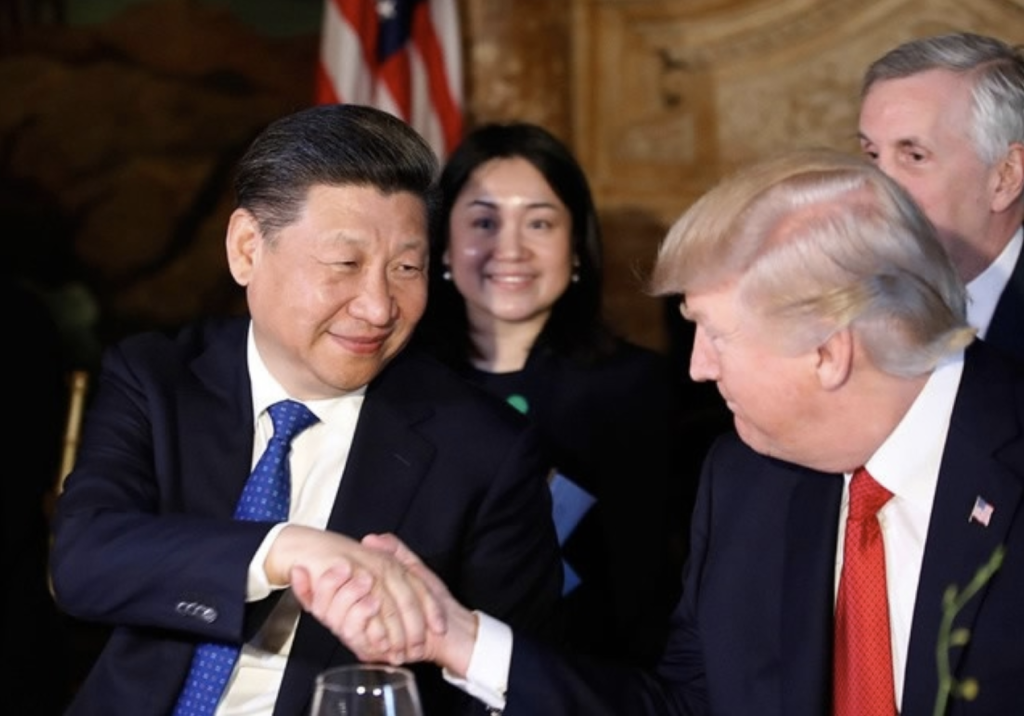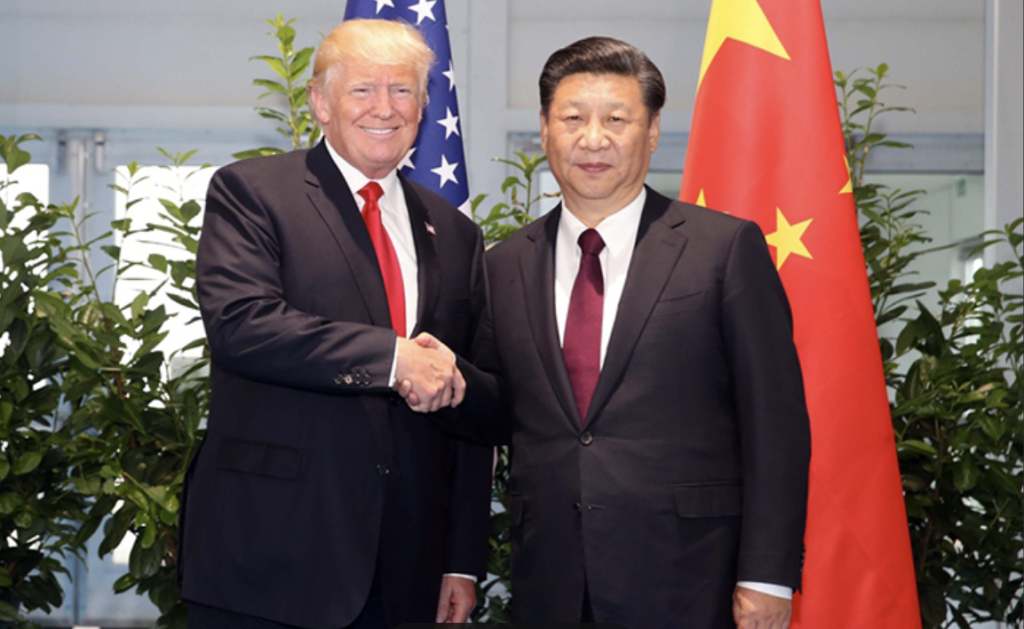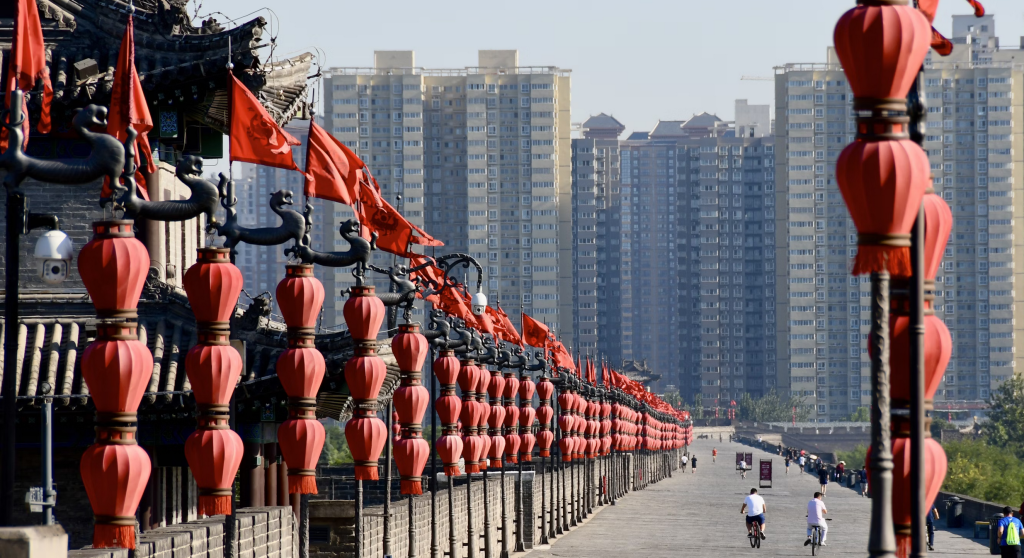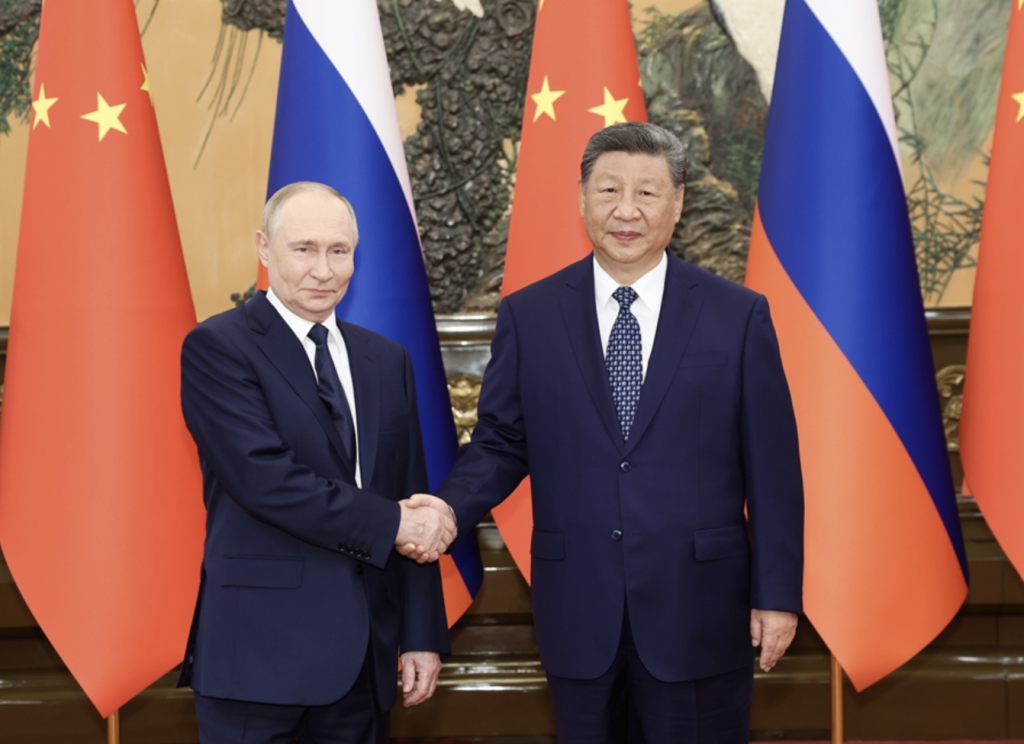China Policy Profiles: Vice President Joe Biden
At this point, former Vice President Joe Biden and Senator Elizabeth Warren are the clear frontrunners in the Democratic field. Of the over 20 candidates, Biden has the most substantial China policy record. During Biden’s tenure as Vice President, President Barack Obama initiated significant China policy change through the “pivot to Asia.” Biden hosted Xi Jinping when Xi visited the U.S. as China’s vice president in 2012 and traveled to Beijing to visit Xi in 2013. When in China, Biden criticized China’s actions in the cybersecurity sector and accused China of stealing American intellectual property. More recently, Biden was widely criticized for saying the idea that China could eat America’s lunch is a joke.
During the third Democratic debate, Vice President Biden gave a confident answer, stressing the long-term danger that China presents to US economic dominance and calling for multilateral action to force China to curb its trade malfeasance. In the past, however, Biden has appeared shaky. The notoriously gaffe-prone vice president came under fire for comments indicating that he was not concerned about China in May 2019. At a campaign rally, Biden said, “China is going to eat our lunch? Come on, man…they can’t even figure out how to deal with the fact that they have this great division between the China Sea and the mountains in the east, I mean in the west.”
Asia security analyst Gordon Chang blasted Biden’s comments as being “absolutely incorrect,” and said, “to say as the vice president said that they’re no competition to the US is just inexplicable.” Biden had commented that he believed China faced too many internal difficulties to pose a threat to the US, saying, “they can’t figure out how they’re going to deal with the corruption that exists within the system. I mean, you know, they’re not bad folks, folks. But guess what, they’re not, they’re not competition for us.” Biden’s characterization of Chinese leaders as “not bad folks” also drew criticism, with Chang pointing out the Uighur camps in Xinjiang as an example of Chinese leadership’s human rights violations.
In subsequent comments, Biden has retreated from those remarks, saying, “I don’t suggest China is not a problem. I’m the guy who’s been the toughest on – I’ve spent more time with Xi Jinping than anybody else, just because the nature of my job.” Elaborating on President Xi, Biden said, “he’s got problems, he’s got gigantic problems. Doesn’t mean he’s not a threat, doesn’t mean they’re not a threat.” When considering both remarks, some commentators have argued that Biden’s view of China is precisely correct. The South China Morning Post’s editorial adviser and former editor-in-chief Wang Xiangwei writes, “Biden could be one of the few prominent and seasoned US politicians who are wide awake about what China is really about – and is willing to talk about it publicly.” Wang notes that Biden’s long political career and high rank means that he has had far more exposure to Chinese politics than virtually anyone in the Trump administration. He also argues that Western paranoia has blinded most American politicians to the fact that although China is catching up to the US in several sectors, even Chinese officials admit that China is “at least thirty years behind the US” in high-end manufacturing capabilities. Unbeknownst to many Westerners, China faces a more severe challenge in the coming years. With growth slowing, China will be forced to transition to a “market economy based on consumption and innovation.” Wang says that US-led international efforts to push against China’s rise will be effective, presenting China with further challenges. With that context in mind, Biden’s confidence in the US’ ability to hold China at bay may be justifiable.
During the fifth Democratic debate, Biden said that as President, he would enhance US ties with South Korea and noted that if China had an objection, it could simply pressure North Korea to end its threatening behavior and render increased US military cooperation with South Korea unnecessary. Biden also decried China’s mistreatment of Uighurs, saying that “we should be going to the United Nations seeking condemnation of China, what they’re doing with the million Uighurs that are there, essentially in concentration camps in the west.” On Hong Kong, Biden expressed that the US should “be vocally, vocally speaking out about the violation of the commitment they [China] made to Hong Kong.” The vice president concluded his remarks by reiterating, “We have to speak out and speak loudly about violations of human rights.”
Some commentators have predicted that Biden, in contrast to other Democratic candidates, would represent a return to the pre-Trump US-China economic relationship. Forbes senior contributor Kenneth Rapoza writes that Biden is “the only man who can save China in 2020” and “corporate America and Wall Street’s best bet for a return to a status quo on China.” Rapoza argues that Biden’s goal for the US and allies to “shape the future rules of the road” will likely result in simply enforcing the WTO rules that China signed on to in 2001, and that China’s moves towards greater protection of intellectual property protection in recent years will likely be enough to address Biden’s concerns. Rapoza concludes that Biden presents the best-case scenario for China, as other Democratic leaders such as Bernie Sanders and Elizabeth Warren have far less conciliatory approaches.
The Council on Foreign Relations (CFR) recently sent a foreign policy questionnaire to the 2020 Democratic presidential candidates, with the first question being, “How, if at all, should China’s treatment of the Uighurs and the situation in Hong Kong affect broader U.S. policy toward China?” Biden wrote that the US must support the Hong Kong protesters’ efforts to preserve their “civil liberties and autonomy,” and that the US must both “speak out against the internment camps in Xinjiang and hold to account the people and companies complicit in this appalling oppression, including through sanctions and applying the Magnitsky Act.” Biden also condemned China’s use of technology to suppress dissent, writing that “The Free World should come together to compete with China’s efforts to proliferate its model of high-tech authoritarianism.” Going forward, Biden wishes “to provide countries with a digital alternative to China’s dystopian system of surveillance and censorship.”
CFR also asked how the 2020 Democrats would handle the crisis of North Korea’s nuclear program. Biden proposed to “empower our negotiators and jumpstart a sustained, coordinated campaign with our allies and others – including China – to advance our shared objective of a denuclearized North Korea.” Biden also advocated for cooperation with China and other neighboring countries in negotiations for a peace settlement and withdrawal of US troops from Afghanistan, including China in a list of important stakeholders in Afghanistan that must play a role to ensure lasting peace. When asked about whether the US should join the Comprehensive and Progressive Agreement for Trans-Pacific Partnership (CPTPP), Biden answered that the US’ decision to back out of the earlier Trans-Pacific Partnership “put China in the driver’s seat.” According to Biden, “TPP wasn’t perfect but the idea behind it was a good one: to unite countries around high standards for workers, the environment, intellectual property, and transparency, and use our collective weight to curb China’s excesses.” As President, Biden said he would partner with US allies in Asia and Europe “in setting the rules of the road for the 21st century” and “to get tough on China and its trade and technology abuses.” Biden concluded his response by saying that his preconditions for a new trade deal would be “major investments in workers and infrastructure,” the inclusion of “representatives for labor and the environment,” and “strong protections for our workers.”
Answering another question from CFR, Biden discussed his plan to address China’s role in climate change. The vice president says the Biden Plan for a Clean Energy Revolution and Environmental Justice “outlines a number of specific steps to deter and dissuade China from subsidizing coal exports and outsourcing carbon pollution, including G20 commitments to end all export finance subsidies of high-carbon projects, offering alternative sources of development financing for lower-carbon investments, and making future U.S.-China bilateral agreements on carbon mitigation contingent on China ending its export subsidies for coal.” On Biden’s campaign website, the plan clarifies that the US and its partners will also offer “development financing for lower-carbon energy investments” to countries participating in the Belt and Road Initiative. Biden promises to secure a global commitment, including a commitment from China, to eliminate all fossil fuel subsidies by the end of his first term as President.
Biden gained extensive experience with China policy in his previous position as Vice President. In January 2012, President Obama made Biden his chief China policy architect in order to have same-level dealings with then Vice President Xi Jinping. In that capacity, Biden visited Beijing in December 2013, after Xi became President, and called for greater cooperation and trust between China and the US. These remarks came as China established a controversial Air Defense Identification Zone (ADIZ) in the South China Sea that included the disputed Diaoyu/Senkaku islands. Biden sought to calm the increasingly volatile China-Japan relationship. However, Biden was firm regarding the US’ stance, informing President Xi that the US would not recognize the ADIZ. A former Obama administration official stated that, “His message to Xi in Beijing was, ‘We’re going to show you and the world it doesn’t count.’” The official added that Biden said regarding the ADIZ, the US would “operate as though it doesn’t exist.” In 2015, Presidents Obama and Xi signed an agreement stating that neither the US nor China would steal intellectual property from each other’s businesses. Although his role was not highly publicized, Biden was a driving force behind the agreement and consistently worked to make China a US foreign policy priority. While Chinese intellectual property theft declined after the agreement was signed, it quickly rose again. Instead of ending its intellectual property theft, Beijing altered its methods, focusing on a small number of high-impact attacks rather than a large amount of moderately effective attacks.
The overall outlook for US-China relations under a Biden presidency is positive. While the relationship faces challenges, Biden’s trade policies will be far more conciliatory than US trade policies have been during President Trump’s first term (though this may be subject to change based on the outcome of October’s trade talks). Though Biden intends to bring the international order together to ensure China’s trade practices are fair, Biden is more likely to compromise with China than his Democratic competitors are. His foreign policy includes opportunities for US-China collaboration such as in Afghanistan and in nuclear negotiations on the Korean peninsula. The global problem of climate change policy could be another possible sphere of cooperation. A healthy trade relationship between both countries would present opportunities for bilateral and trilateral cooperation such as collaboration on the development and implementation of green energy technology in other nations. Biden’s record is also encouraging, as he has a history of adaptability on China issues. Although he is willing to compromise with China, he has proven his ability to stand firm to protect US interests and its presence in East Asia. At this point, cooperation seems more likely to increase under a Biden presidency than under a Sanders or Warren presidency.
References:
1. NBC News. “Full Transcript: Democratic Debate in Houston.” NBCNews.com, NBCUniversal News Group, September 13, 2019. https://www.nbcnews.com/politics/2020-election/full-transcript-democratic-debate-houston-n1053926
2. Saagar Enjeti. “Analyst: Biden’s Comments on China ‘Inexplicable, Absolutely Incorrect’.” TheHill, May 6, 2019. https://thehill.com/hilltv/442351-analyst-biden-china-comments-inexplicable-absolutely-incorrect
3. Wang Xiangwei. “’Sleepy Joe’ Biden Is One of the Few US Politicians Who’s Wide Awake about China.” South China Morning Post, May 11, 2019. https://www.scmp.com/week-asia/opinion/article/3009709/sleepy-joe-biden-one-few-us-politicians-whos-wide-awake-about
4. Kenneth Rapoza. “Joe Biden Is The Only Man Who Can Save China In 2020.” forbes.com. Forbes, August 27, 2019. https://www.forbes.com/sites/kenrapoza/2019/08/27/joe-biden-is-probably-the-only-man-who-can-save-china-in-202o/#771b55023826
5. Joe Biden. “Joe Biden Answers Our Foreign Policy Questions.” Council on Foreign Relations. Council on Foreign Relations, August 1, 2019. https://www.cfr.org/article/joe-biden
6. “Climate: Joe’s Plan for a Clean Energy Revolution and Environmental Justice.” Joe Biden for President, June 2019. https://joebiden.com/Climate/
7. Steve Clemons. “Biden Gets China.” The Atlantic. Atlantic Media Company, January 4, 2012. https://www.theatlantic.com/politics/archive/2012/01/biden-gets-china/250747/
8. Michael Martina and Ben Blanchard. “Biden Says U.S., China Must Expand Cooperation.” Reuters. Thomson Reuters, December 4, 2013. . https://www.reuters.com/article/us-china-usa/biden-says-u-s-china-must-expand-cooperation-idUSBRE9B308120131204
9. Michael Martina and Ben Blanchard. “Biden Calls for Trust with China amid Airspace Dispute.” Reuters. Thomson Reuters, December 4, 2013. https://www.reuters.com/article/us-japan-china-usa/biden-calls-for-trust-with-china-amid-airspace-dispute-idUSBRE9B303220131204
10. Stephanie Murray. “Biden Girds for Clash with Trump over China.” POLITICO, June 5, 2019. https://www.politico.com/story/2019/06/05/joe-biden-trump-china-2020-1353637
11. Adam Segal. “Is China Still Stealing Western Intellectual Property?” Council on Foreign Relations. Council on Foreign Relations, September 26, 2018. https://www.cfr.org/blog/china-still-stealing-western-intellectual-property


